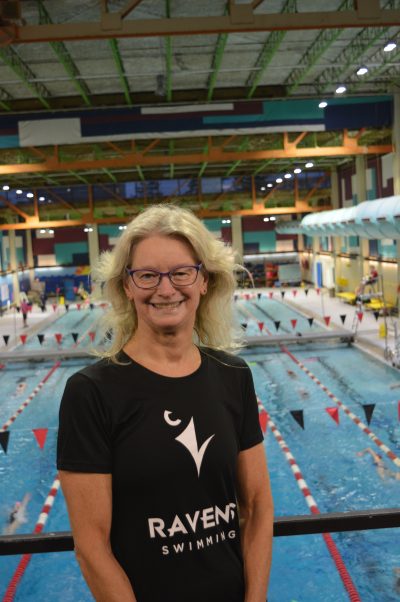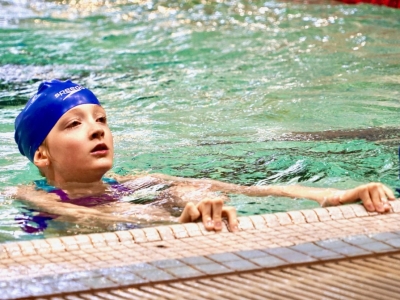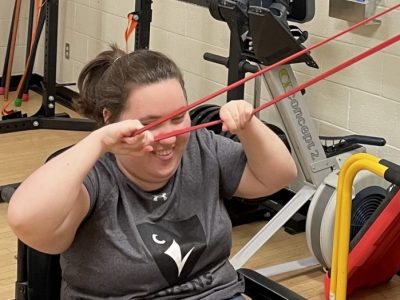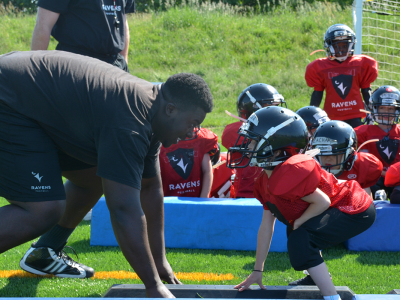By Mason Bugaresti
There has been a familiar face at the Carleton Aquatics centre for the past three decades. Amidst a flurry of backstrokes and flutter kicks, Lynn Marshall can be found training the Carleton Masters, supporting Carleton’s student-athletes and even getting a swim in herself. It’s one of several hats Marshall wears in addition to being a professor at Carleton after receiving her Ph.D. in Software Engineering from the University of Manchester.

Carleton University professor and swim coach, Dr. Lynn Marshall
Marshall has had a highly successful career in the pool bringing great expertise to the Carleton community. She has been in the Top 10 Masters swimming rankings every single year dating back to 1986. In 2011, Marshall became the second Canadian ever inducted into the International Masters Swimming Hall of Fame, and she is also a member of the Masters Swimming Canada Hall of Excellence.
In 2021, Marshall set an 800-metre record for the Masters’ 60-64 division with a highly impressive time of 9 minutes, 59.85 seconds. She continues to set records in the pool to this day, beating her 800-metre long-course world record as well as her 1500-metre short-course world record earlier in 2023.
Her swimming career started back in Manitoba swimming with her local Manitoba Marlins team. After earning her senior Red Cross certification at 10, Marshall signed up for the Marlins rather than waiting a full four years before she could begin working towards her Bronze Medallion. Marshall recalls that the relationship between her and the pool was not necessarily love at first sight.
“I’m not sure I would have called it a love at first. I remember at that age not really loving the training, but my parents encouraged me to stick with it because they wanted their kids to know how to swim. I enjoyed the competitions and being with my friends, but not the training,” Marshall says.
After sticking with the Marlins for several years, Marshall made the transition from sprint-swimming to distance over a decade later in her final year of university. It was there that she discovered a natural aptitude for long-distance swimming, spawning what would go on to be an illustrious career.
“I finally realized, admitted, discovered, that I was really much better at the distance swimming,” Marshall says.
Having finally found distance swimming as her calling, Marshall began to carefully perfect her craft. She earned herself a reputation amongst coaches and other swimmers for being an extremely hard worker in training where six days a week she would do 90 minutes in the pool mixed with dryland weight training.
Breaks from the pool are not something that Marshall sees often, but unforeseen circumstances have the power to change things.
“I haven’t had any super long breaks; I mean there’s been times off when I was travelling or I was working through an injury,” Marshall says.
Perhaps Marshall’s greatest challenge to her swimming career is overcoming a broken neck which looked like it would completely derail her swimming career. During a 1993 triathlon, she was riding her bicycle when a car veered onto the racecourse and struck her. The most severe of her injuries was a broken C-1 neck vertebra which connects the head to the top of the spine. Breaking a C-1 vertebra can sometimes lead to complete paralysation.
Even this major setback could not keep Marshall out of the pool for long. While wearing her neck brace for months after her release from the hospital, she would still do water running in the pool and light weight training to help her return to form. Marshall would recover from her injury and go on to write her name all over the Canadian Masters’ record books.
While still competing in the Masters circuit, Marshall also instructs the Carleton’s Masters swim team. She started training at Carleton in 1989 when a friend recommended the university’s pool. Since then, Marshall has been a part of a tight-knit Carleton swim community which draws her and others to the Masters program.
By 2001, Marshall was named head coach of the Masters swim team. It’s a title she still holds, and a role that requires tailoring coaching to the needs of the individual swimmer.
“Not everyone in the Masters program competes, so people are there for different reasons. For some people, they are training for competitions and want help with technique. Others are just there for fitness. Some people come just to be part of a group and don’t necessarily want a lot of stroke correction,” Marshall explains.
As a face of aquatics at Carleton and the Carleton Swimming alumni chapter president, Marshall also leads the way in the fundraising effort for the university swim team. As a non-varsity club team, the program does not receive full varsity funding and annually raises supplementary money to continue operations.
“We need the money to be able to recruit swimmers without having to charge them thousands of dollars,” Marshall says.
“The alumni have been great over the years helping with that. We have it down to a pretty good routine. We set up a Facebook event. We send out a letter to the alumni about how the team is doing. Some of the alumni are disappointed that we lost our varsity status, so that motivates them to donate,” says Marshall.
Lynn Marshall can still be found coaching every Monday, Wednesday, and Friday at Carleton. If her lengthy resume of success proves one thing, it is her commitment to swimming which she will not give up anytime soon. Despite all of her accolades, Marshall continues to find new ways to keep herself motivated.
“It’s so rewarding to watch the people you coach do really, really well.”
Wednesday, March 8, 2023 in Community, News
Share: Twitter, Facebook



